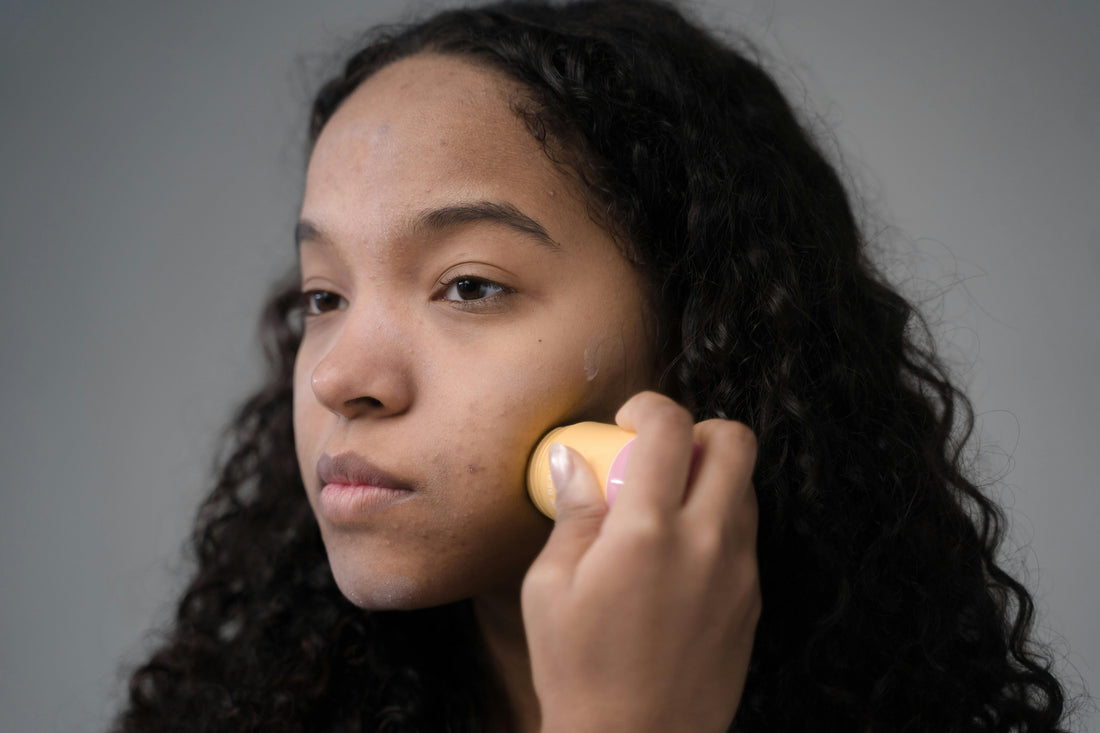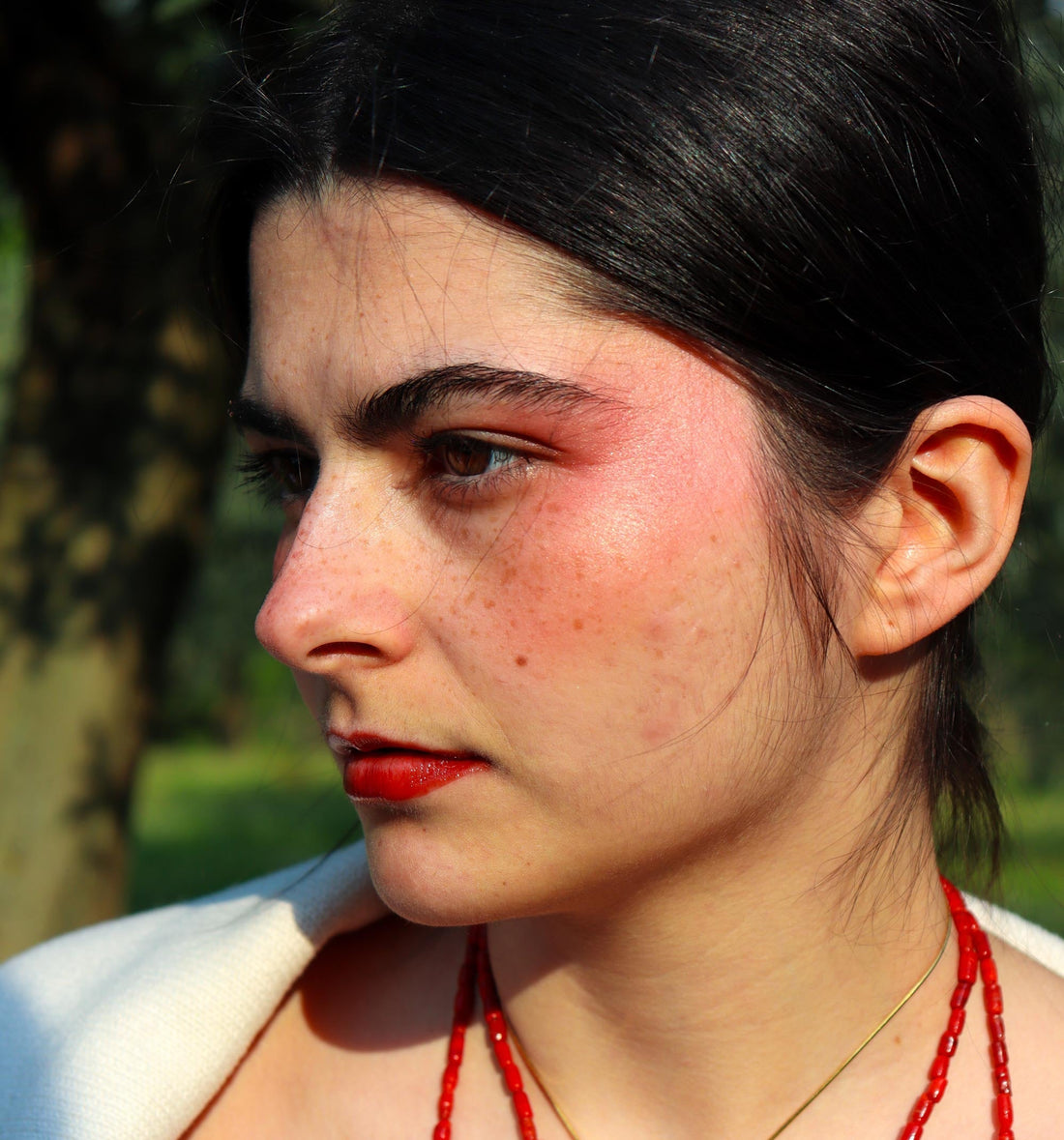by Camilla Vaiani
In today’s hectic world, the cosmetic industry can seem like a whirlwind of products and promises, often far from nature itself. However, there is a return to roots, a resurgence of simplicity and purity that reflects not just a trend but a genuine cultural shift: the embrace of naturalness in cosmetics and natural ingredients in beauty. In a world increasingly striving for sustainability and well-being, naturalness becomes not only a conscious choice but also a way to celebrate beauty in harmony with nature and in full respect of its spectacular gifts.
TL;DL:
Defined by ISO 16128, naturalness in cosmetics highlights the use of ingredients from natural origins, but balance is key: some natural substances are toxic, while many synthetic ones are safe and effective. The real innovation lies in hybrid cosmetics, like Lebubè’s, which combine science and nature to ensure safety, effectiveness, and sustainability, meeting the growing demand for transparent and conscious beauty products.
What Does Naturalness Mean in the World of Cosmetics?
At Lebubè, we strongly believe in the power of nature, which is why all our cosmetics have a high degree of naturalness (as you may have noticed from our newly launched hybrid cosmetics).
Specifically, following the ISO 16128 standard, we define ingredients of natural origin as those where more than 50% of the molecule comes from a natural source such as plants, non-petroleum-based minerals, water, or other natural origins. This includes ingredients processed through physical processes (such as grinding, drying, or distillation), fermentation reactions that occur in nature and lead to molecules found in nature, or other methods that do not involve deliberate chemical alterations (ISO).
What are the Benefits of Natural Ingredients in Cosmetics?
Building on what has just been said, the naturalness of cosmetics brings many benefits, given that they are made up of at least 50% natural ingredients (Cleveland Clinic, 2023):
Hypoallergenic:
This term indicates that a cosmetic product is made with ingredients that are unlikely to cause allergic reactions (but as we will see shortly, it is not always true).
Non-toxic:
This generic term is essentially a marketing term intended to convey the idea that a cosmetic product is safe.
Paraben-free:
These hormone-disrupting substances, which mimic estrogen in the body, are used as preservatives in many skincare products but have been recognized as contributors to health problems, such as infertility and cancer.
PFAS-free:
Per- and poly-fluoroalkyl substances (PFAS) are hormone-disrupting substances that can affect sleep, blood pressure, metabolism, among other things.
Phthalate-free:
These hormone-disrupting substances are sometimes used as solvents in skincare products.
Sulfate-free:
Also known as surfactants, sulfates are substances that make products foamy.
Why is the Combination of Natural and Synthetic Cosmetics Essential for Beauty?
“At Lebubè, we also believe that not all natural ingredients are beneficial for the skin, just as not all synthetic ones are harmful. Our hybrid cosmetic products combine science and nature through synthetic and natural formulations that work in synergy for maximum safety and effectiveness”. This is what our commitments say, which you can find at this link.
The word "synthetic" might evoke images of scientists in white coats "playing" with colorful, smoking test tubes. But what are synthetic ingredients? A synthetic ingredient is a substance obtained by chemically altering the starting natural ingredients to create new materials with different properties (ACS, 2024). This does not imply that synthetic products are necessarily better than natural ones, nor is it always true that natural ones are always better than synthetic ones!
In fact, nature also produces substances harmful to us: beyond ricin, other toxins such as botulinum toxin, snake venom, arsenic, and asbestos are entirely natural. Botulinum toxin (produced by bacteria found in nature) is actually about a hundred thousand times more toxic than the most poisonous synthetic substance, namely dioxin.
Why do such dynamics occur? Plants are anchored to the ground, exactly where they are born, and cannot escape potential dangers like hungry animals. As a result, many have had to develop sophisticated toxins to keep unwanted intruders away. Toxins present in plants like monkshood, hemlock, belladonna, giant hogweed, and poison ivy cause severe skin reactions comparable to those caused by synthetic chemicals. This all testifies that cosmetics based on natural ingredients are not inherently better (Lab Muffin, 2015).
A 2022 study demonstrated that almost all cosmetics on the market (94% of 1700 products) are composed of natural and synthetic ingredients that could easily trigger contact dermatitis, characterized by red, itchy rashes, blisters, scaliness, swelling, and discomfort (Cleveland Clinic, 2023).
So how can we understand what is safe and what is not? Unfortunately, there is no general shortcut: we must evaluate each ingredient on its own merits. Both natural and synthetic products can be safe; both natural and synthetic products can be dangerous. There is no good or bad!
What is the Current State and Value of The Natural Cosmetics Market?
What is the current state and value of the natural cosmetics market?
In recent years, there has been growing awareness about the cosmetic products we put on our skin and hair. With greater attention to ingredient labels and product origins, consumers are shifting towards alternatives that prioritize "naturalness" and "sustainability." This movement is not just a passing trend but reflects a deeper desire to connect with the natural world and reduce the environmental impact of our consumption. The global market size for natural cosmetics was about $37.9 billion in 2023, with a projected growth of 5.1% between 2024 and 2032, expected to reach $58.8 billion (Global Market Insights, 2023)
Moreover, between January and February 2021, Natrue (The International Natural and Organic Cosmetics Association) conducted a survey in France and Germany where over 1000 participants (70% women and 30% men, aged 18 to 65) were asked to test about 30 different brands (conventional, natural, or organic). The results showed that in Germany, the naturalness of cosmetics represents 20% of the decision-making process and is an integral choice for consumers when purchasing a natural and organic cosmetic product. This percentage is slightly higher in France, where it reaches 24%.
To characterize the meaning of "naturalness" in each market, survey participants were also asked what factors they believed contributed to the definition of this concept. When asked, "Which aspects of naturalness are most important to you?" both German and French consumers chose "100% natural and organic ingredients" as the main characteristic, followed by other aspects such as "animal welfare protection" and "low environmental impact."
Naturalness and Natural Ingredients: The True Revolution in Cosmetics
The adoption of naturalness and natural ingredients in cosmetics reflects a growing awareness towards sustainability and well-being. This cultural movement, in addition to meeting a more informed and demanding market demand, celebrates authentic beauty in harmony with nature. While recognizing that not all natural ingredients are always safe, the balanced combination of natural and synthetic elements allows for effective products that are respectful of the environment. At Lebubè, we have also begun to embrace these values with our first products – hybrid cosmeticsmade up of at least 89% natural ingredients – positioning ourselves among the pioneers of a cosmetic revolution aiming for a more sustainable and conscious future, ensuring transparency and quality at every production stage.
Would you like to try our natural hybrid cosmetics? We look forward to seeing you here!
FAQs
What are natural ingredients?
Natural ingredients are substances derived from nature, including plants, minerals, and water. They are minimally processed, typically using physical methods like grinding or drying, and are not chemically altered.
What is considered natural in cosmetics?
In cosmetics, an ingredient is considered natural if more than 50% of its molecular structure comes from natural sources such as plants, non-petroleum-based minerals, or water. These ingredients are processed using methods that do not involve deliberate chemical changes.
What does natural mean in the beauty industry?
In the beauty industry, "natural" refers to products made with ingredients that are derived from nature and processed in ways that preserve their natural state. This term often implies the use of pure, minimally processed ingredients that are free from synthetic additives.
What is a natural cosmetic ingredient?
A natural cosmetic ingredient is a component used in beauty products that comes from natural sources, like plant extracts, essential oils, and minerals. These ingredients are typically processed without chemical alterations to maintain their natural properties.
What are the benefits of natural ingredients?
Natural ingredients offer several benefits, including being hypoallergenic, non-toxic, and free from harmful chemicals like parabens, sulfates, and phthalates. They are generally gentler on the skin and reduce the risk of allergic reactions and irritations.
What is the difference between natural and synthetic ingredients?
Natural ingredients are derived from natural sources and processed minimally, while synthetic ingredients are created by chemically altering natural substances to produce new materials with different properties. Both types of ingredients can be safe and effective, but their benefits and potential risks vary.
Which is better, synthetic or natural?
Neither synthetic nor natural ingredients are inherently better. The safety and effectiveness of an ingredient depend on its specific properties and how it is used. Both types of ingredients can be beneficial or harmful, so it's essential to evaluate each one individually.
Are natural ingredients better?
Natural ingredients are not necessarily better than synthetic ones. While they offer certain benefits, such as being less likely to cause allergic reactions, some natural substances can also be harmful. The best approach is to consider the balance and safety of all ingredients used in a product.
How big is the natural beauty industry?
The natural beauty industry is substantial and growing. In 2023, the global market for natural cosmetics was valued at approximately $37.9 billion, with an expected growth rate of 5.1% per year, projected to reach $58.8 billion by 2032.



